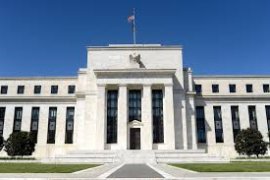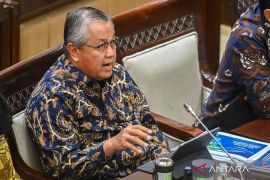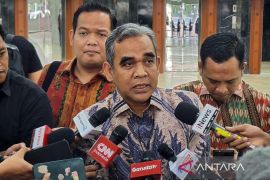"All countries, including Indonesia, should take advantage of the postponement of the financial stimulus reduction plan and reflect their economic reform commitment," added the finance deputy minister during a finance ministers` meeting of the Asia-Pacific Economic Cooperation (APEC) on Friday.
He said quantitative easing must be stopped so that people would not be complacent with low cost and low interest rates. "Low cost and low interest rates may not provide people with accurate information on the optimal usage of their funds," he added.
However, in the scope of economic development, Indonesia should remain cautious about the decision of the US central bank.
"Actually, it would be good if there is turmoil so that people will be alert and would not be complacent. They should see what they need to improve upon so that when quantitative easing is stopped, they would not be surprised," he said.
He added that Indonesia and other countries in the world are prepared because they have experienced similar problems.
Therefore, Indonesia needs structural improvement to enhance its economy after the postponement of Fed`s financial stimulus reduction package.
The reform should be used to stave off inflation and reduce trade balance deficit.
"It should be implemented well and the results should be monitored for the next implementation," said Mahendra.
Apart from implementing monetary policies, the government should reduce imports and increase investments.
The Federal Reserve has decided not to taper quantitative easing for the time being, which is hailed by the world, including Indonesia, where the rupiah responded positively and strengthened.
In the meantime, the World Bank warned that tapering-related risks and uncertainty will remain even though the US central bank has decided to continue with its stimulus programme.
"Now is the time for policy makers to use the momentum to settle domestic vulnerabilities and reduce exposure to external finance," said World Bank`s Executive Director Sri Mulyani Indrawati in her speech at the meeting of the APEC finance ministers.
She viewed Fed`s recent decision to continue with its stimulus programme as an action with positive outcomes in the short run for the economies of both developing and high-earning countries.
"We know that this decision has given a number of governments time `to breathe`," she said.
Sri Mulyani added that if liquidity was held back and interest rate rose, withdrawal of quantitative easing policy in stages would lead to serious consequences in the APEC region.
Therefore, she said, countries that have recovered from the economic crisis must adjust their macro-economic policies to prevent inflation, asset bubbles, and their current account deficit from widening.
Countries that are easily affected by global capital flows, meanwhile, should continue to strengthen their balance sheets by reducing their dependence on short-term foreign debts, she explained.
"Significant efforts in the region to develop local currency denominated bond market are clear signs that policy makers have understood and responded to the need," she said.
The former Indonesian finance minister explained that when the quantitative easing policy is withdrawn later, interest rate will likely rise to increase the cost of debts and capital.
On the other hand, she said it would signal further recovery in the US economy and depreciation of currencies in the developing countries would increase exports from those countries.
EDITED BY INE
(A014/KR-BSR/S012)
Editor: Jafar M Sidik
Copyright © ANTARA 2013










